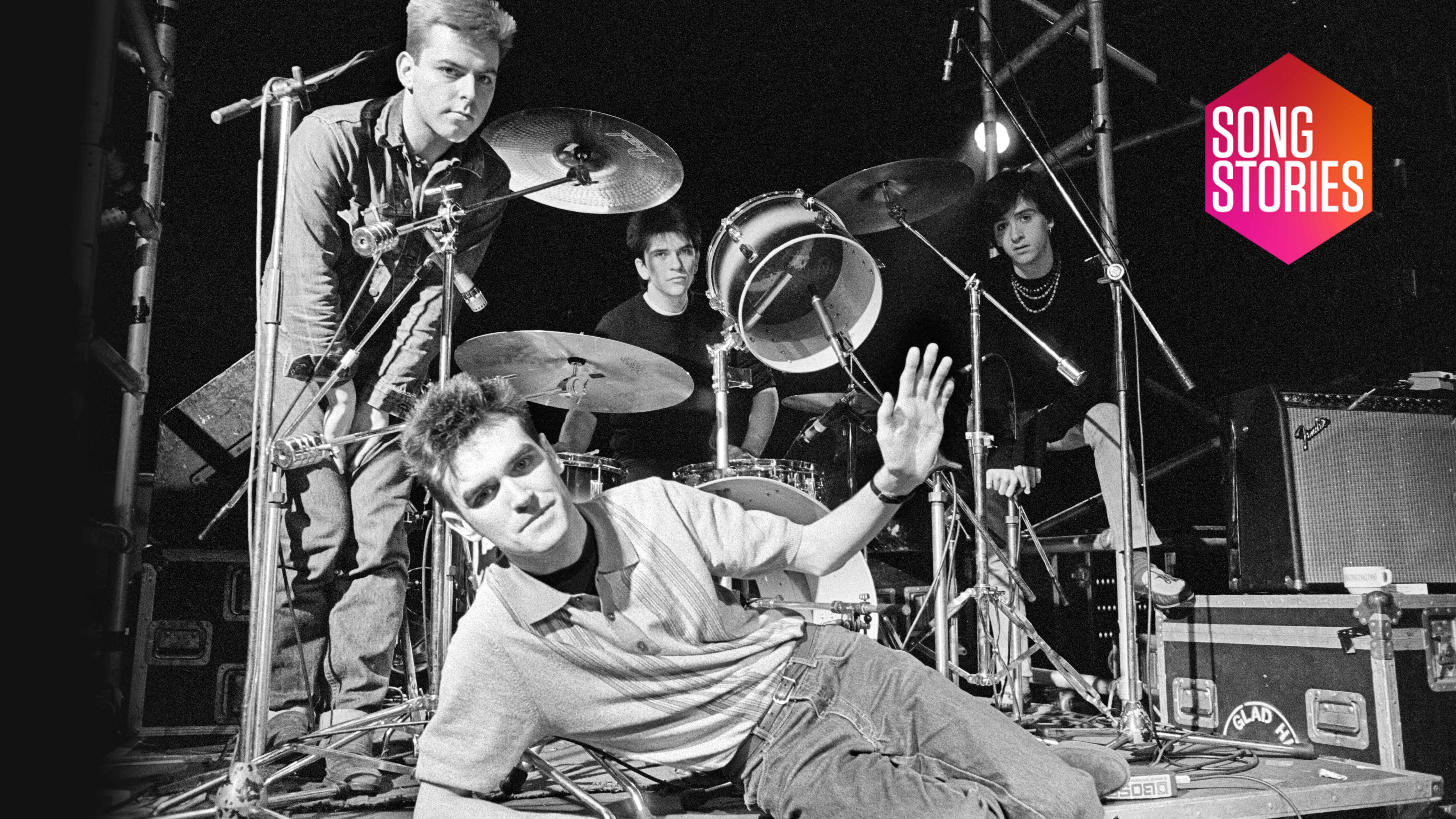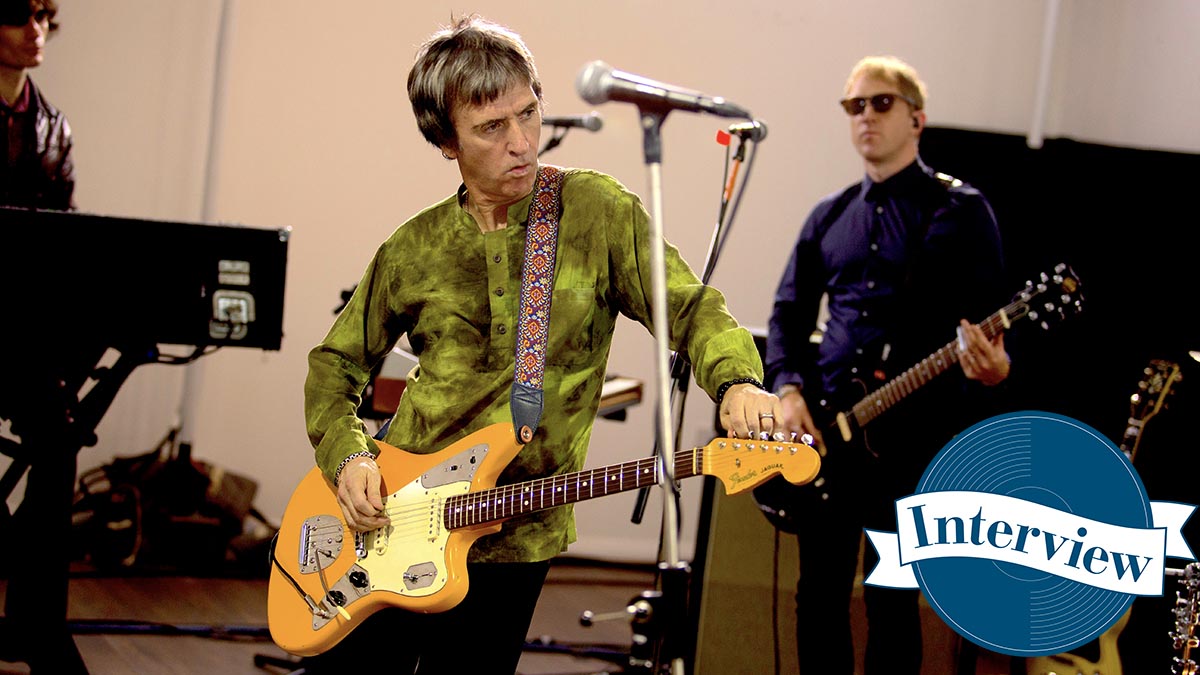"My Tele was on just about every track I did with The Smiths" – John Porter talks producing Johnny Marr on Heaven Knows I'm Miserable Now
The crafting of an indie classic

Want all the hottest music and gear news, reviews, deals, features and more, direct to your inbox? Sign up here.
You are now subscribed
Your newsletter sign-up was successful
In 1984, The Smiths released their fourth single Heaven Knows I’m Miserable Now, which hit a peak of No 10 on the UK singles chart and further enhanced the cult Manchester band’s rapidly rising status as the most original independent guitar band around. The four-piece’s eponymous debut album had already given them a No 2 chart placing while previous singles This Charming Man and What Difference Does It Make? had also charted well.
Indie music was now firmly breaking into the mainstream. The combination of Morrissey’s oft-outspoken, witty and intellectual lyricisms and Johnny Marr’s fusion of Byrds-esque jangling melodies with post-punk guitar dynamics proved the perfect tonic.
The Smiths were arguably one of the most influential British guitar groups of the 1980s and without them there’s an odd-ons chance that Radiohead, Coldplay, The Stone Roses, Blur and Oasis would never have got it together.
John Porter had already produced The Smiths’ debut long player by the time he joined them in Island Records’ Fallout Shelter studio in Hammersmith to cut Heaven Knows I’m Miserable Now. “I used to get phone calls from Johnny at the last moment saying, ‘Can we do something?’,” recalled Porter to Matt Frost for Total Guitar in 2012. “And I think this was one of those cases where he called me and asked me if I could find a studio.”
Porter had good connections with Island and, after booking The Smiths into The Fallout Shelter, was looking forward to reuniting with old engineering buddy, Richard Digby-Smith.
However, when John arrived at the studio he found he’d been given a young rookie in-house engineer to work with instead. The occasion would be Stephen Street’s first significant recording session and would cement him as an automatic choice for the next three Smiths albums.
Porter remembers the first time the band ran through Heaven Knows and it wasn’t long before he and Marr were revisiting the song’s structure. “It was a short song and it was pretty linear,” says John. “It was just this thing that started and went through to the end with no particular break or any real structure. I do remember us working on the intro and then adding in the re-intro and the little instrumental outro thing. I’ve always loved guitar intros and early on Johnny and I had talked about that and we actually made that one of our things in that all The Smiths’ records should have a guitar intro specifically to hook in the kids in their bedrooms!”
Want all the hottest music and gear news, reviews, deals, features and more, direct to your inbox? Sign up here.
Many of Johnny Marr’s chords across Heaven Knows have a jazzy feel to them. Porter believes that both the song’s intro section and some of the overdubs could have marked the first time that Marr ever played a Strat-style guitar on record.
“They’re pretty chords with nice major 7ths and the odd 9ths,” enthuses Porter. “We made the most of that by accentuating some of those chords and really bringing them out. I think that was the first time we used a Strat[-style guitar] and I can remember Johnny using it. I’d sort of put it together out of bits and you can hear it.
"There’s a little lick in between the verses, which is a Strat[-style guitar, most likely with a three-position switch] with the pickups jammed and out-of-phase. This was also maybe the first time Johnny had used a whammy bar. I was really into Strats and I think I was probably prompting him saying, ‘Hey, make this chord sound great by putting a whammy bar on the end of it!’”
I’d stick my fingers on the frets and say, ‘Add this note to the riff or these two bars’, which is really kind of rude and a bit of an imposition but, by that time, we had a really good relationship
John Porter really enjoyed the times he spent with Johnny Marr crafting Smiths guitar overdubs in the control room. “We would always put the tracks down and then Johnny and I would smoke lots of dope and dub lots of guitars all night long,” laughs John. “I recognised that he was a very creative and also a very accurate player. Johnny’s approach was very exact and I was very impressed how he pretty much knew when he’d nailed it.”
The young Marr was also always happy to take advice from John Porter as far as guitar parts went. “He’d be sitting in a chair next to me playing and we’d be getting a part together,” says Porter. “And as he’d be playing, I’d stick my fingers on the frets and say, ‘Add this note to the riff or these two bars’, which is really kind of rude and a bit of an imposition but, by that time, we had a really good relationship. He would say, ‘Yeah, I like that’ or ‘I don’t like that but let’s use half of it and do this’ and he would sort of refine it and get it down.”
A lot of the so-called chiming Rickenbackers were actually that Tele
As with many of Porter’s Smiths recordings, there are quite a few guitar overdubs sprawled across this track, each plugged into Marr’s Roland Jazz Chorus amp. John believes Johnny’s famed 1959 Gibson ES-355 could well have made its first session appearance on the single, and his own 1954 Telecaster – used on record by Eric Clapton and Jeff Beck – also came into play.
“My Tele was on just about every track I did with The Smiths,” confirms John. “A lot of the so-called chiming Rickenbackers were actually that Tele. I don’t think we used Rickenbackers that much.”
Porter’s production journey with The Smiths came to an end later on in 1984 following the fruitful recording sessions that bore the classic Smiths tracks William, It Was Really Nothing, Please, Please, Please Let Me Get What I Want and How Soon Is Now?. “I really enjoyed his company and thought he was a great guitarist,” says John of Marr. “I felt a great affinity with him, we had a lot of fun. He was like a younger brother or something.”
